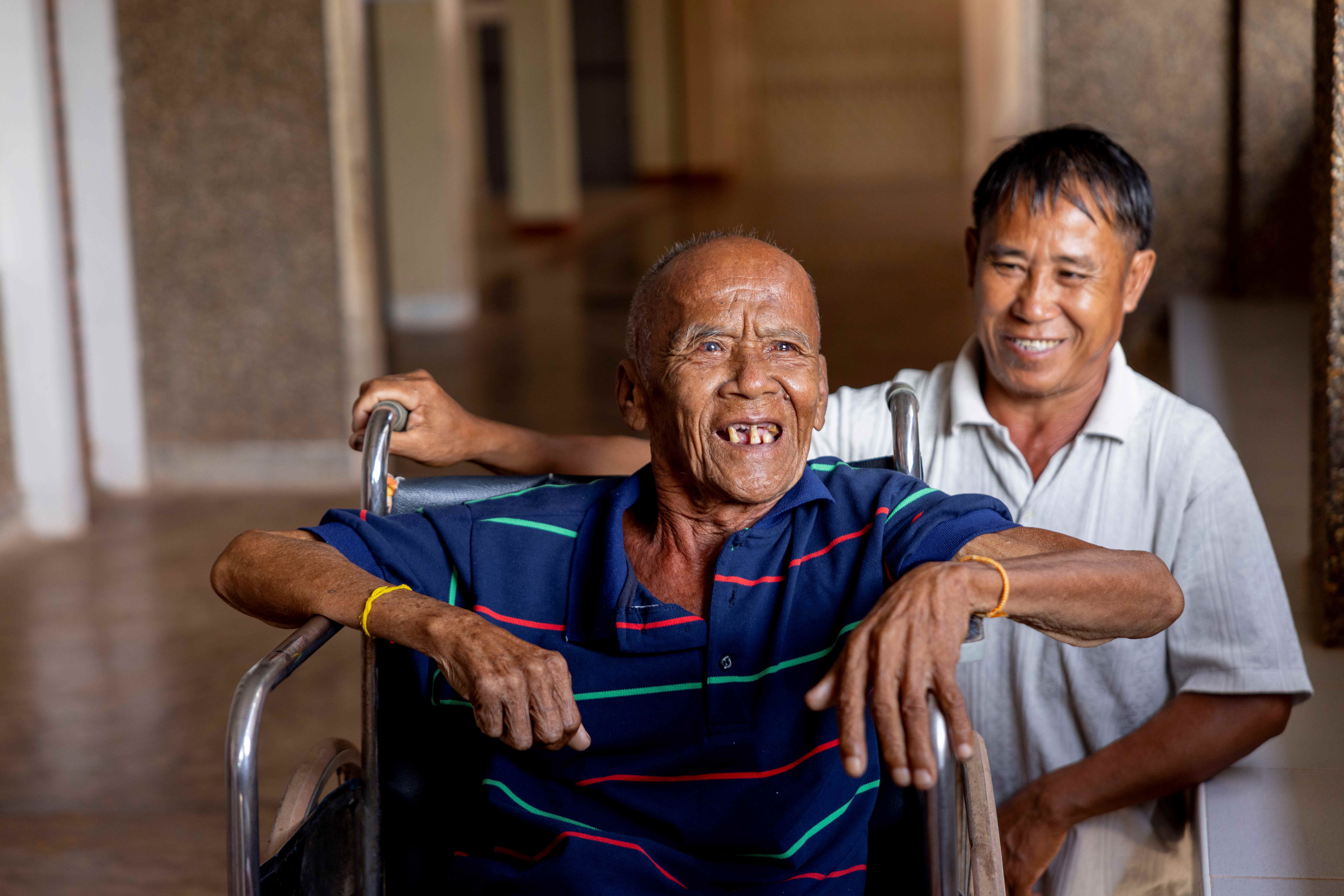Fred's mission
Our founder, Fred Hollows, was an internationally renowned eye surgeon and humanitarian. He worked tirelessly to not only end avoidable blindness in Indigenous Australia and around the world, but to make sure everyone had the right to quality eye health. While it didn’t happen in Fred's life time, we’re working hard to make sure it happens in ours.
What exactly is avoidable blindness?
In developing countries, 9 out of 10 people who are blind don’t need to be. Eye diseases like cataract, trachoma and diabetic retinopathy can lead to blindness when, in fact they're either treatable or preventable.
The reason people live with blindness is that they can’t access quality eye health care. In many cases, a straightforward 20-minute operation can restore sight or a dose of antibiotics can prevent blindness.
So many millions of people are blind simply because they live in poverty. The incredible injustice of this is the driving force behind our work.
Our work in developing countries
A majority of the world's blind live in developing countries. Malnutrition, inadequate health and education services, poor water quality and a lack of sanitation can all contribute to eye disease. When people can’t get help, or don’t realise help is available, they stay entrenched in a cycle of extreme poverty – and become increasing vulnerable to avoidable blindness.
The impact of restoring sight goes beyond treating blindness.
In research we’ve undertaken, we discovered that alleviating blindness is an effective way of easing poverty in the developing world. If more people in a nation can see, more people can go to school, work, raise children, or start businesses. Ending avoidable blindness improves the economy, equality, skills and development of a country, while reducing its financial and social burden.
Fred's way was never to fly eye doctors into a country or hand out cash and walk away. The Foundation believes in partnerships with individuals, communities and governments.
Our aim, wherever we work, is to build capacity at all levels - from village health centres to regional hospitals to national ophthalmological networks. We train local doctors and health workers, build and upgrade facilities, develop and introduce new technology, and provide equipment.
Advocacy is another key part of our work. We lobby governments to change policies and improve health systems. All the different facets of our work are about achieving two things: providing long-term sustainable eye health care and ending avoidable blindness.
I believe the basic attribute of mankind is to look after each other, and that’s what makes humans look after other humans when they are in need.
Women are more likely to be blind than men
In every region of the world, women are more likely than men to be blind, 1.3 times more likely, in fact. There are a number of reasons why:
Women are the primary caregivers
Sadly, children can pass on trachoma to their mothers just from a cuddle – due to transmission and reinfection from a simple touch. Trachoma is a painful eye inflammation usually associated with poverty and it can lead to permanent blindness. Women are more likely to stay at home to care for the kids, so are more than twice as likely as men to be repeatedly infected.
Women are less able to get treatment
Due to gender imbalance in many communities, men control the family finances and their medical needs are prioritised. It can also be harder for women to travel because of family responsibilities or for cultural reasons.
Women and girls have to care for blind relatives
Blindness doesn't just affect those who have lost their sight. Girls often have to leave school to care for their relatives who have gone blind. When girls miss out on education, their longer-term future is impacted: they often become stuck in poverty as adults themselves – and so do their children.
The discrimination starts early
In many places, the gap between rates of blindness in girls compared to boys is even higher than the gap between women and men. If girls are blind, it's almost impossible for them to go to school and earn a living when they're older. This further perpetuates the cycle of poverty as well as the financial and social burden on a country.
Older people are more likely to live with avoidable blindness
Older people account for 73% of all cases of avoidable blindness worldwide. While age increases the risk of conditions like cataracts and glaucoma, blindness is not a normal part of ageing—and much of it can be prevented with timely treatment.

Barriers to care
Many older people, especially those in low-income countries, struggle to access eye care. Services are often unavailable, unaffordable, or too far away. Misconceptions about blindness being "just part of getting older" also prevent people from seeking help.
A preventable problem
With better access to affordable eye care, millions of older people could keep their sight and independence. Early detection, treatment, and outreach can prevent unnecessary blindness and support healthy ageing around the world.
